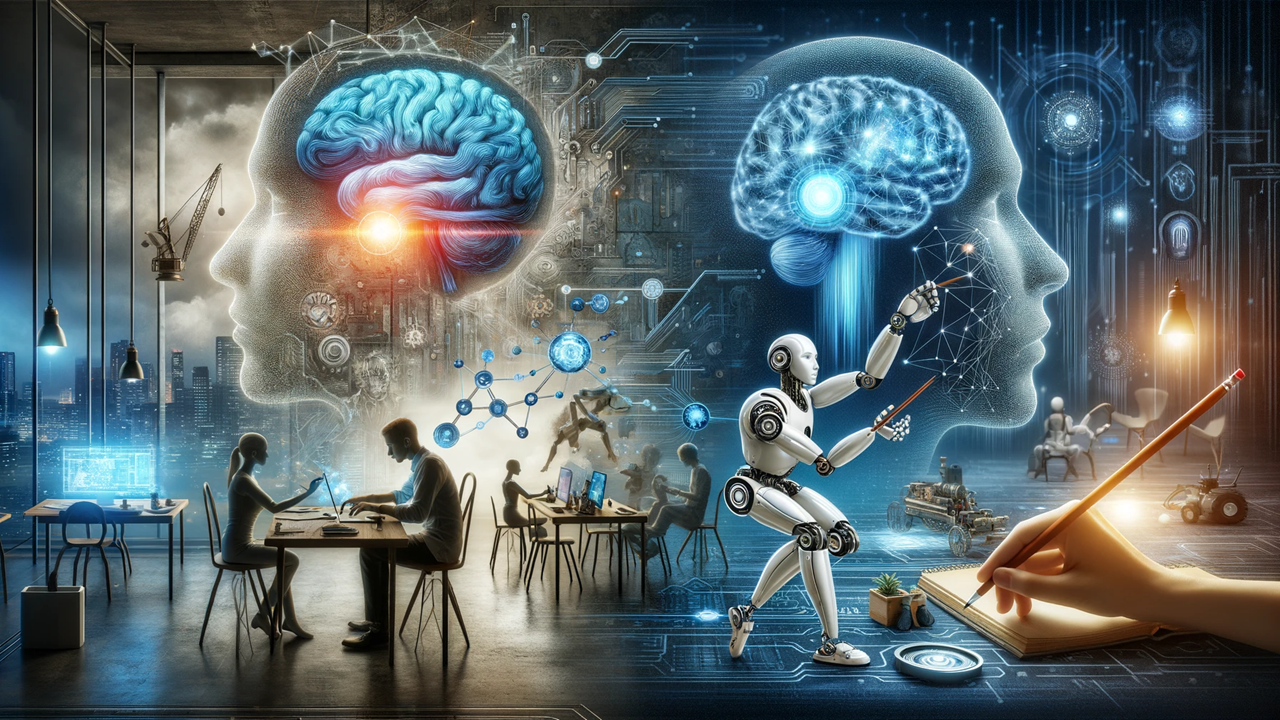The Future of Work: How AI is Transforming Industries and Job Roles

In recent years, the term 'Artificial Intelligence' has transcended the boundaries of science fiction, becoming a dynamic and integral part of our daily professional lives. AI's influence is profound and far-reaching, impacting industries from healthcare to finance, manufacturing to education. As we stand on the brink of this technological renaissance, it's imperative to understand the multifaceted ways AI is sculpting the future of work.
Redefining Job Roles and Skills
AI's most immediate impact on the workforce is the transformation of job roles and requisite skills. Automation, once feared as a job-destroyer, is now recognized for its potential to augment human capabilities, rather than replace them. Routine, repetitive tasks are delegated to machines, freeing human workers to engage in more complex, creative, and strategic activities. This shift is not about job loss but about job evolution. As AI handles mundane tasks, human workers are tasked with roles that necessitate emotional intelligence, critical thinking, and creative problem-solving, uniquely human skills.
Bridging the Skill Gap
However, this transition comes with its challenges, notably the skill gap. The demand for AI literacy and data proficiency is soaring. Educational institutions and corporations increasingly invest in training programs to equip the workforce with necessary AI and machine learning skills. Lifelong learning and continuous skill development are becoming non-negotiable, ensuring that workers remain competitive and relevant in an AI-driven landscape.
Transforming Industries from Within
Industries are experiencing AI-induced transformations from within. In healthcare, AI-driven diagnostics and personalized treatment plans are revolutionizing patient care. In finance, algorithmic trading and fraud detection systems are setting new standards for efficiency and security. Manufacturing is witnessing the dawn of Industry 4.0, where AI-powered robots work alongside humans, optimizing production lines and reducing waste. In every sector, AI is not just an add-on but a core component driving innovation and efficiency.
Navigating the Ethical Terrain
The ascent of AI also brings to light the critical need for ethical considerations. Issues surrounding privacy, bias in AI algorithms, and the future of employment are hotly debated topics. Policymakers, technologists, and business leaders must collaborate, ensuring AI's growth is aligned with ethical standards and contributes positively to society. Transparent AI systems, fair data practices, and regulations to protect against job displacement are pivotal in fostering an AI ecosystem that is both innovative and responsible.
The Future is Collaborative
The future of work is not human versus machine but human with machine. AI is becoming a collaborative partner, enhancing human potential rather than replacing it. For instance, AI-assisted design enables architects to explore complex designs, while AI in education provides personalized learning experiences. The synergy between human creativity and AI's analytical prowess is unleashing new realms of possibility.
Preparing for a Dynamic Future
As we navigate this AI-driven epoch, adaptability is key. Organizations must foster a culture of innovation, encouraging employees to embrace change and be proactive learners. Governments must play a pivotal role in supporting transitions, offering safety nets for those displaced, and ensuring the benefits of AI are equitably distributed.
Conclusion: Embracing the AI Era
The narrative of AI in the workplace is not a tale of replacement but of enhancement and opportunity. As industries adapt, the workforce is not diminishing but transforming, cultivating a landscape where human ingenuity and artificial intelligence coalesce to forge a future brimming with potential. Embracing AI is not just about staying competitive; it's about unlocking a spectrum of possibilities and fostering a work environment that is innovative, inclusive, and profoundly human.
As we stand at the cusp of this transformative era, the question is not whether AI will be integral to the future of work, but rather, how we can harness its full potential to enrich our professional and personal lives. The future of work is here, and it is intertwined with the intelligent, empathetic, and ethical use of AI. The journey is complex, the challenges significant, but the opportunities? Limitless.
ALSO READ
Revolutionising Business: PwC India and Automation Anywhere Join Forces
EIB Grants €30M to Y Soft for Cutting-Edge Office Automation and Robotics Innovation
Revolutionizing QA: BrowserStack's Low Code Automation Launch
Adapting to Change: How Malaysia’s Workforce Can Balance Migration and Automation
AI Agents: The Next Frontier in Business Automation










